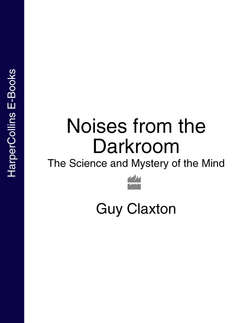Читать книгу Noises from the Darkroom: The Science and Mystery of the Mind - Guy Claxton - Страница 33
The Brain with No Self
ОглавлениеIn the octopus colony there is no privileged group with special status or special powers. Just as the brain as a whole has to be seen as a subsystem of the whole body, so each octopus gang must be seen as a member of a participative democracy. What happens in the brain, and the momentary conjunction of priorities, interpretations and actions that it is involved in computing, arise naturally and uniquely from the state of the system as a whole – brain, body and world.
Many of those who have been working in the area of neuroscience have made it very clear that their object is to see just how much of human functioning can be accounted for without recourse to any ‘ghost in the machine’. How far can we get before we have to call upon ‘the self? Could it be that we can even get all the way: that the hypothetical ring-master or engine-driver, the personal ‘I’, is not actually in control; that the biology, when it comes down to it, does the lot? Donald Hebb, the Godfather of neuroscience, was in no doubt:
This discussion…represents my attempt to be rid once and for all of the little man inside the skull who approves of some sensory events relayed to him by the nervous system, disapproves of others, and guides behaviour accordingly…By some such approach as the one suggested, it may be possible to understand the directedness and order in behaviour, and the variability of motivation, as produced by neural functioning alone.26
And Francisco Varela of the Ecole Polytechnique in Paris is of the same mind:
Each component operates only in its local environment…but because of the system’s network constitution, there is a global co-operation which spontaneously emerges…In such a system…there is no need for a central processing unit to guide the entire operation.27
As Patricia Churchland points out (in the quotation at the beginning of this chapter), however, this leaves us with some explaining to do when we come to consider the prevalent sense that we all have that there is some instigator behind the eyes, with whom we are rather closely identified, who can override what is going on and impose its ‘will’ on the rest of the brain/body system.
One latent misunderstanding that the octopus analogy might induce needs to be scotched straight away. The ideas of ‘awake’ and ‘asleep’ simple translate in brain terms as ‘switched on’ or ‘activated’, and ‘unactivated’, or ‘dormant’. An awake octopus is one whose connections and characteristics are currently instrumental in determining where the activation or the ‘energy’ in the network flows next. A dormant octopus is one who is not currently involved. There are no implications in this model about consciousness. The pattern of awake octopuses has nothing (so far) to do with what is conscious. As we shall see later, what enters consciousness is often only very distantly related to what is going on ‘behind the scenes’ in the octopus disco-land of the brain-mind.
